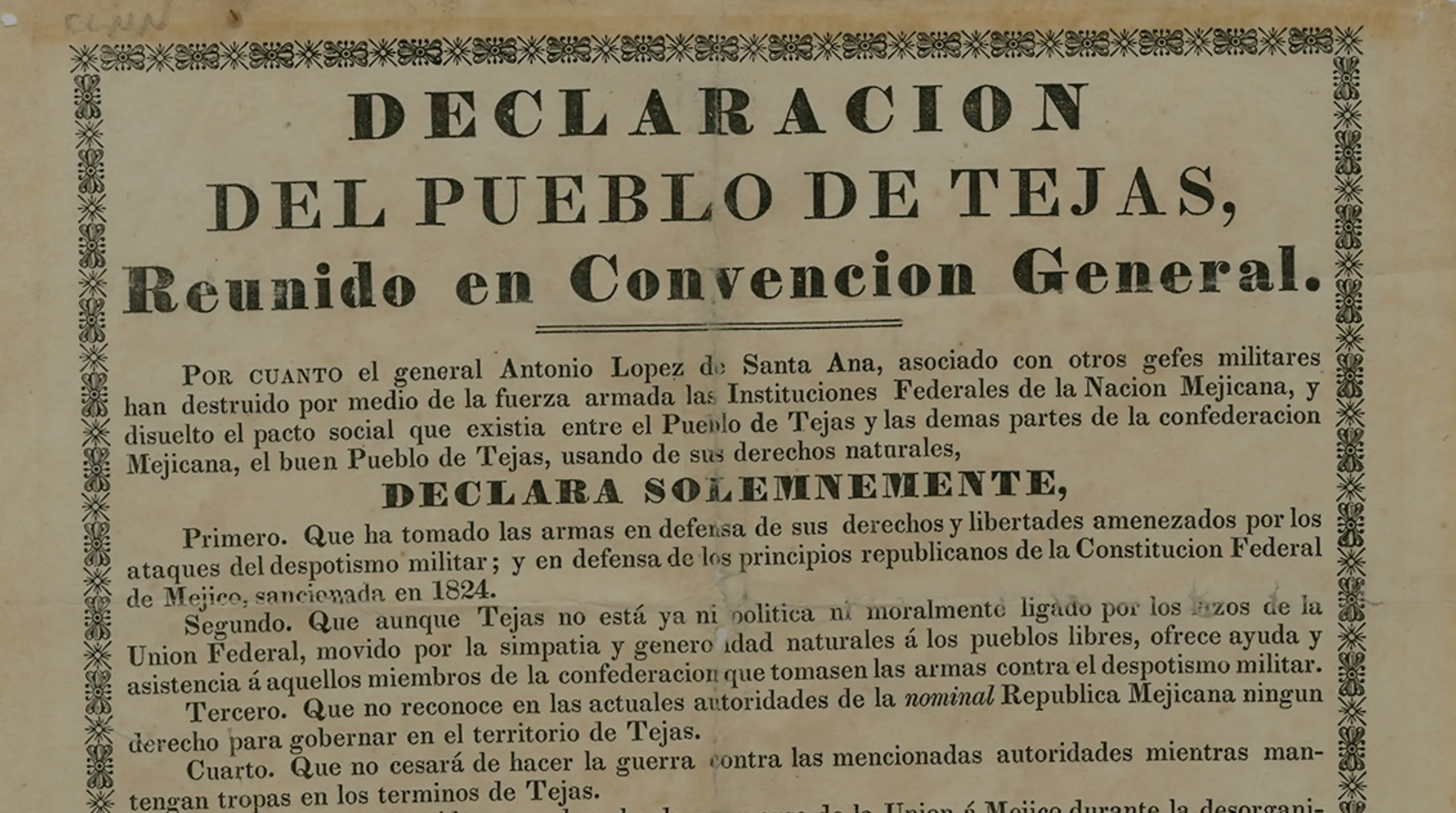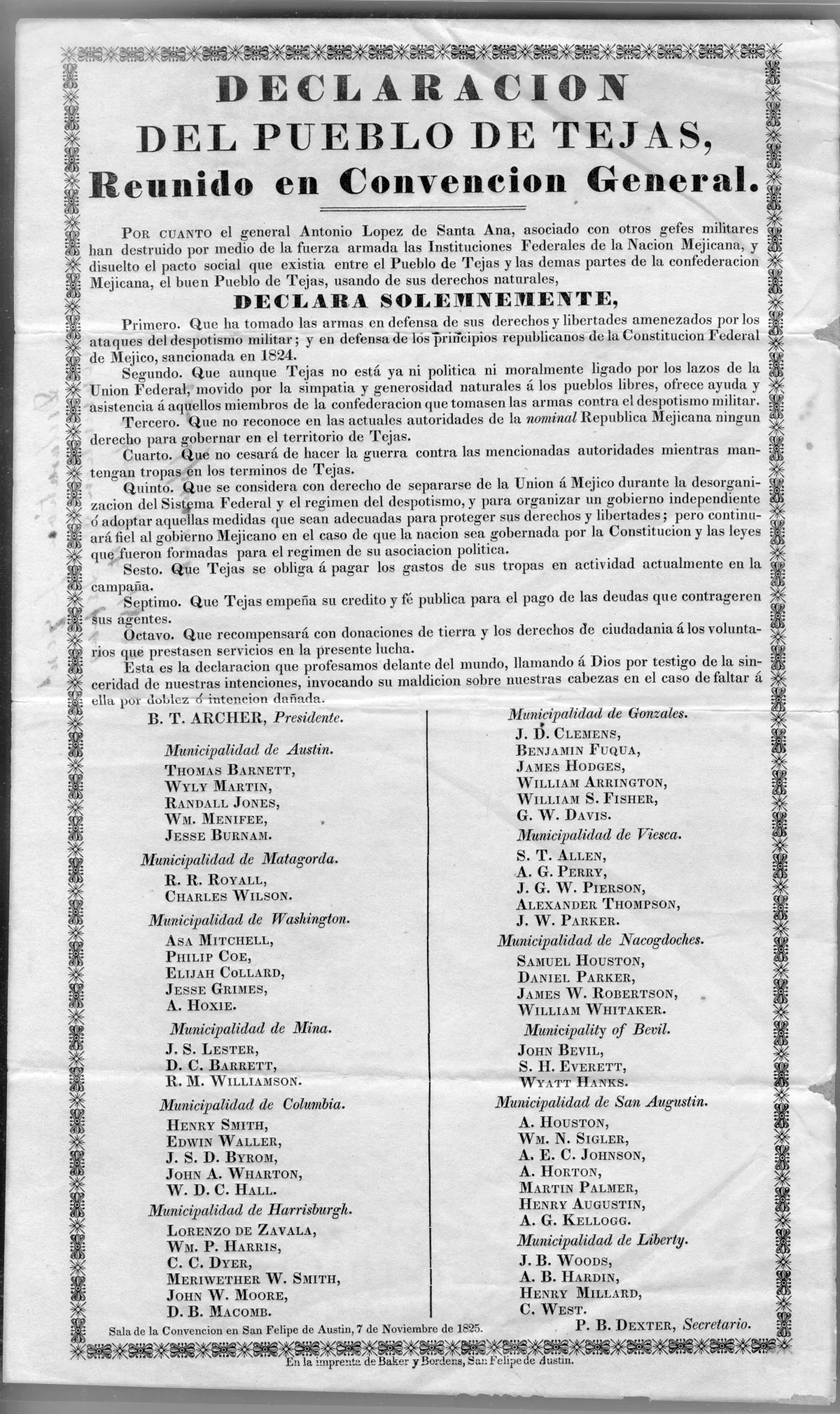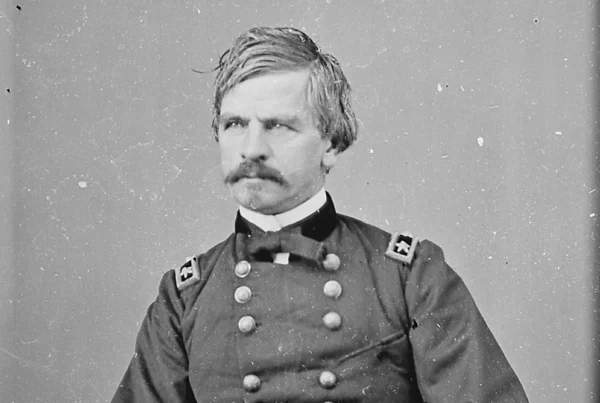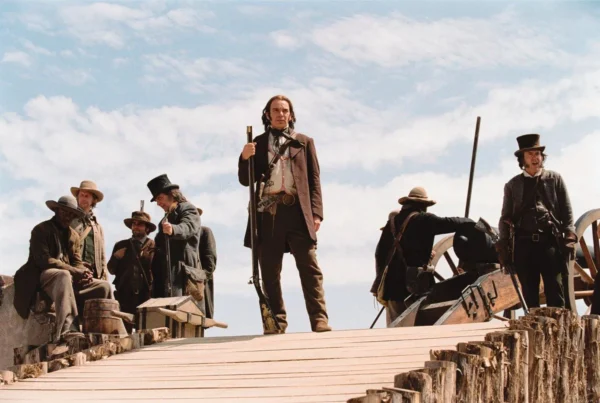In the autumn of 1835, the Texas Revolution shifted from scattered skirmishes to a deliberate bid for political direction. As Texian militia besieged Mexican forces at San Antonio de Béxar, local committees of safety called for a Consultation—a convention meant to give the rebellion legitimacy, set clear goals, and create a provisional government. Delegates gathered at San Felipe de Austin in early November to decide whether Texas would fight for full independence or seek restoration of the Federal Constitution of 1824, which President Antonio López de Santa Anna had overturned in favor of centralist rule.
Debate was sharp. Some members pressed for outright secession, while others feared alienating potential allies in other Mexican states and preferred to defend constitutional order. The convention ultimately sought a middle path. On November 7, 1835, it issued a “Declaration to the Public,” in Spanish, stating that Texans had taken up arms to defend their rights and liberties against “military despots” and to uphold republican principles under the 1824 constitution—yet reserving the right to form an independent government.
The Proclamation stated, “Texas is no longer morally or civilly bound by the compact of union.” This approach framed the uprising as part of the broader Mexican federalist struggle while paving the way for the Texas Declaration of Independence in 1836.
To manage civil and military affairs in Texas and legitimize the uprising, the Consultation created the General Council, a provisional governing body. One of the declaration’s principal authors and its Spanish translator was the physician and journalist Lorenzo de Zavala, a noted liberal reformer who within months would become the first vice president of the Republic of Texas.
This proclamation, reproduced below, offered both a legal and ideological foundation for the rebellion. It framed the Texian cause as a defense of constitutional order rather than an outright secessionist revolt—though its language left room for full independence if reconciliation proved impossible.




